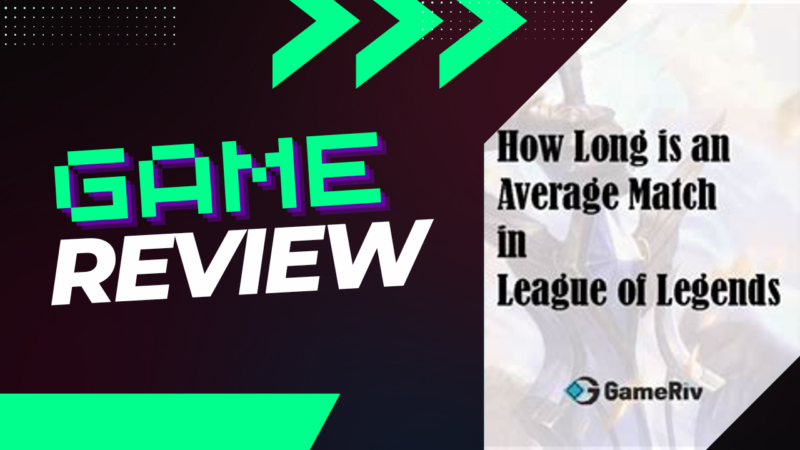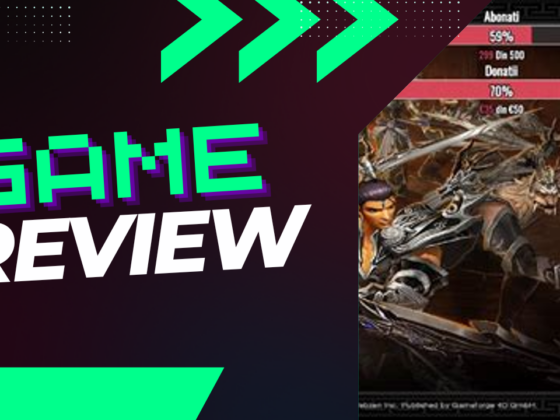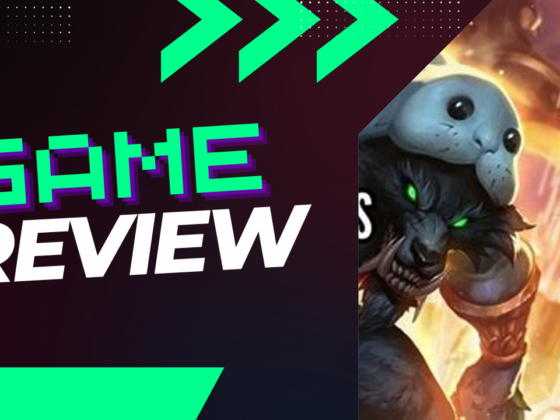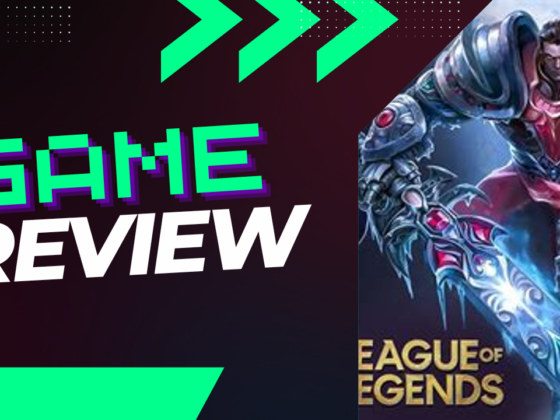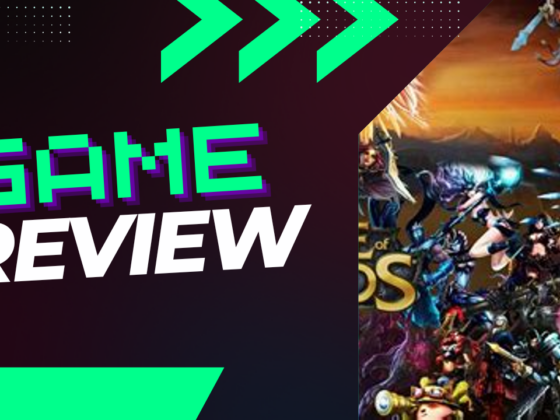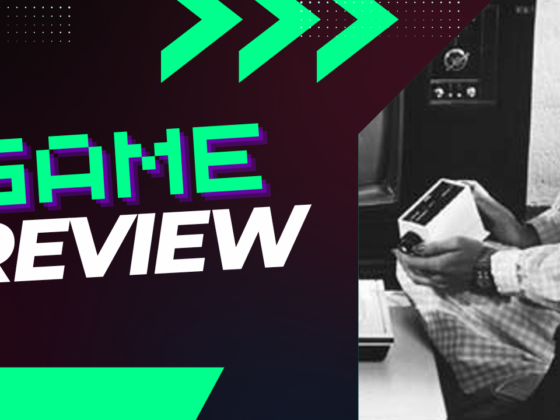How long does a battle stand between champions in the virtual arena of Summoner’s Rift? In the world of League of Legends, the average game lasts between 25 to 35 minutes, a ticking clock influenced by player skills, strategies, and the mode of play. Just as a thrilling movie can stretch its runtime with exciting plot twists, the length of these matches varies widely, holding players on the edge of their seats—or at least on their gaming chairs—waiting for that climactic finish. Join us as we dive into the nuances of game duration and uncover what makes each League experience uniquely timed.
How long does an average League of Legends game last?
The average game of League of Legends typically lasts between 25 to 35 minutes, but this figure is quite dynamic and can fluctuate based on a variety of factors. For instance, the skill levels of the players involved play a significant role; in higher ranks, where players demonstrate sharper decision-making and teamwork, matches often end more swiftly. Conversely, in lower-ranked tiers, games can drag on longer due to indecision or lack of coordination.
Moreover, the game mode selected heavily impacts match length. For example, games played on Summoner’s Rift, the traditional three-lane map, usually fall around the 30 to 40-minute mark, while ARAM (All Random All Mid) matches, which involve a single lane, can conclude much quicker, often in 15 to 25 minutes. Additionally, factors such as champion composition and team strategies also affect how quickly one side can gain an advantage and ultimately close out the game.
To add some context, ranked games generally last longer than casual matches due to more strategic play and less likelihood of surrenders. Understanding these nuances can help you better anticipate match durations, allowing you to manage your gaming time effectively. If you’re tight on schedule, opting for ARAM might be your best bet for a swift game session, while Summoner’s Rift is a great choice if you’re prepared to commit around half an hour or more.
What is the average game duration in Summoner’s Rift?
The average match duration in Summoner’s Rift generally ranges from 30 to 45 minutes.
This time frame is influenced by the game’s intricate design, which includes a classic three-lane layout featuring numerous strategic objectives such as towers, dragons, and the Baron Nashor. Each team must carefully manage these elements while coordinating with teammates.
As the game progresses, players engage in various team fights, tactical maneuvers, and objective control, all of which add to the length of the match. On average, more experienced teams may finish matches closer to the 30-minute mark, while less coordinated teams often find themselves in games that extend beyond 45 minutes due to prolonged skirmishes and indecision.
It’s also worth noting that factors such as champion composition, player skill levels, and meta strategies can significantly affect game duration. For example, compositions centered around late-game scaling champions may lead to longer games, as they prioritize securing objectives rather than pushing for early advantages.
In summary, while the 30 to 45 minutes range serves as a general guideline, the dynamic nature of Summoner’s Rift ensures that each match can offer unique challenges and timelines. Players often learn the importance of adaptability and teamwork to optimize their chances of securing victory within this time frame.
How does ARAM compare in game length to Summoner’s Rift?
ARAM, or All Random All Mid, typically features a shorter game length compared to the classic Summoner’s Rift mode, with matches averaging between 15 to 25 minutes.
This difference in duration stems from ARAM’s unique single-lane design, where all players are funneled into one central path. This setup fosters rapid team fights, continuous skirmishes, and swift objective captures, resulting in a fast-paced experience. Unlike Summoner’s Rift, where strategies often involve prolonged farming and lane control across three lanes, ARAM’s streamlined format encourages immediate action, making it perfect for players looking for a quick yet exhilarating gaming session.
For those interested in stats, you might find that the quick resolution in ARAM matches is partly due to the reduced strategic complexities and lack of jungle presence, which often elongate games in Summoner’s Rift. If you enjoy competitive play but have limited time, ARAM offers a fantastic solution while still delivering intense gameplay. Just be ready for the non-stop action and unexpected team compositions that can make each match unique!
What factors influence the duration of a League of Legends game?
The duration of a League of Legends game can be influenced by several key factors:
- Game Mode: Different modes feature varying average game lengths. For example, Summoner’s Rift generally has a longer duration, often lasting around 30-40 minutes, while ARAM matches tend to be shorter, usually clocking in at about 15-25 minutes.
- Player Skill Level: More skilled players typically finish matches more quickly. Their ability to coordinate efficiently and implement aggressive strategies can lead to a faster game flow, often resulting in decisive victories.
- Champion Composition: The choice of champions plays a significant role. Teams featuring champions that thrive in the early game, such as Lee Sin or Fizz, might conclude games faster than those with champions that scale better in late-game scenarios, like Vayne or Kassadin.
- Objectives Controlled: Taking control of critical objectives like Dragons, Barons, and turrets can accelerate game endings. Securing these objectives provides team advantages, boosts gold income, and increases pressure on the opponent.
- Team Fights: The frequency and outcomes of team fights significantly affect match length. A decisive team fight victory can allow a team to push for victory, while prolonged back-and-forth skirmishes can lead to extended matches.
Understanding these factors can help players strategize better and adapt their gameplay to influence the pace and outcome of a match.
What strategies can players use to shorten game time?
To shorten game time effectively, players can implement a variety of strategies:
- Synergistic Team Compositions: During champion select, prioritize characters that complement each other well, enabling quick and effective engagements. For example, a combination of crowd control champions with high burst damage can eliminate enemies swiftly.
- Decisive Gameplay: Make quick, confident decisions throughout the match. This includes knowing when to engage or retreat, helping to maintain momentum and keeping the enemy on their toes.
- Early Objectives: Focus on securing early objectives such as dragons and towers. This strategy not only boosts your team’s gold and experience but can also create a significant advantage that contributes to a faster victory.
- Avoid Indecisiveness: Steer clear of unnecessary team fights that can drag the game on longer than needed. Instead, opt for skirmishes that have clear advantages, ensuring your team retains control and accelerates progress towards victory.
By incorporating these tactics, players can significantly reduce game duration, enhancing both enjoyment and efficiency in gameplay.
Can the average game time exceed one hour?
Can the average game time exceed one hour?
Yes, while the typical duration of a game ranges from 25 to 35 minutes, there are occasions when matches can surpass the one-hour mark. This usually happens when both teams are similarly skilled, creating a competitive atmosphere that fosters extended strategic play.
In such scenarios, you’ll often witness multiple exchanges of control, where neither team is able to secure a decisive advantage. Friends and rivals alike can find it thrilling to watch as teams engage in intense back-and-forth battles, testing their strategies to outmaneuver each other. These games may also involve tactical pauses to reassess the situation, leading to a drawn-out yet exciting experience for spectators.
For example, high-level tournaments may feature matches that significantly extend due to teams carefully planning each move to counteract their opponent’s strategy, nurturing an atmosphere charged with anticipation. So, while the average game time is straightforward, many factors can lead to those edge-of-your-seat moments that push the clock past one hour!
What are the shortest and longest recorded League of Legends games?
The shortest recorded game in League of Legends lasted just under 13 minutes, primarily driven by an aggressive gameplay strategy that rapidly dismantled the opposing team, often resulting in an early surrender. Such games typically highlight the importance of momentum and swift execution in competitive play.
On the other hand, the longest games can exceed 90 minutes, filled with intense skirmishes, strategic maneuvering, and careful resource management from both teams. These prolonged battles often involve a deep understanding of game mechanics, in-game economy, and the ability to adapt strategies mid-game. For instance, teams may meticulously engage in objectives, such as Baron and Dragon engagements, leading to extended matches characterized by dramatic twists and turns. Such lengthy encounters not only test teamwork and endurance but also showcase the mental fortitude required to outlast an opponent in a drawn-out contest.
In summary, while short games emphasize speed and aggression, long games demand strategic depth and sustained effort, illustrating the diverse nature of League of Legends as both a fast-paced and strategically rich experience.
How does League of Legends’ game duration compare to other MOBAs?
In the realm of MOBAs, League of Legends typically sees an average match duration of 25 to 35 minutes, which is relatively moderate compared to its competitors. For instance, Dota 2 often features matches that can last anywhere from 20 minutes to over an hour, greatly influenced by its unique mechanics, objectives, and player strategies.
This variance in game duration stems from several factors. For example, Dota 2‘s gameplay incorporates a more complex item and strategy system, which can prolong matches as players engage in in-depth tactical plays. In contrast, League of Legends tends to promote shorter, more action-oriented games, with its focus on quick objectives and fast-paced team fights leading to swifter conclusions.
Additionally, League of Legends has a specific design philosophy aimed at keeping matches engaging and dynamic, ensuring that players experience a consistent rhythm throughout each game. On the other hand, the diverse array of potential late-game strategies and prolonged engagements in Dota 2 can lead to extended match lengths.
In essence, while League of Legends offers relatively quick gameplay, often culminating in decisive victories, Dota 2 provides a distinct experience with its potential for longer, more strategic matches. This makes both games appealing for different reasons, appealing to a wide range of player preferences.

